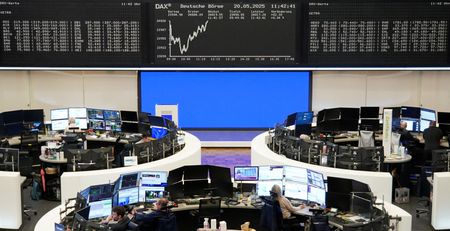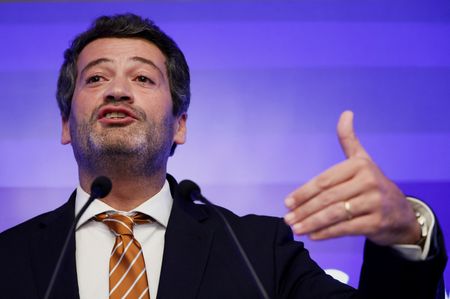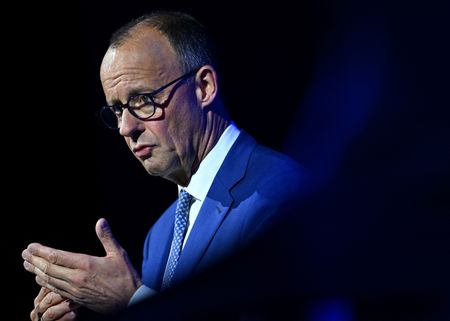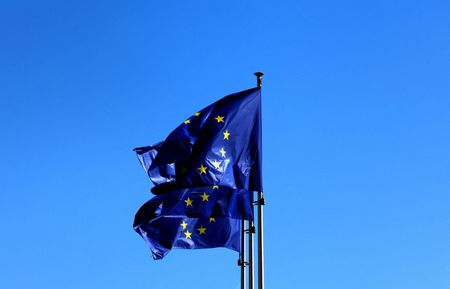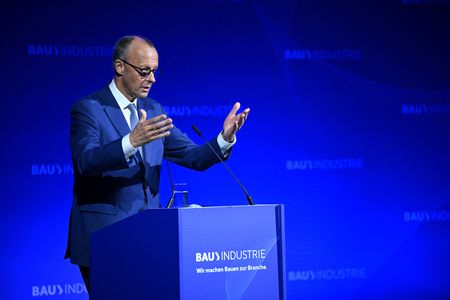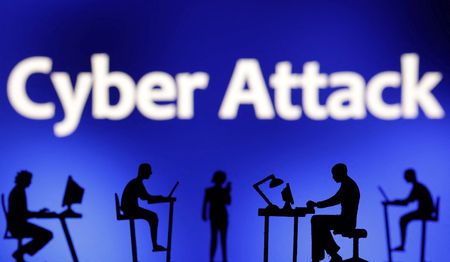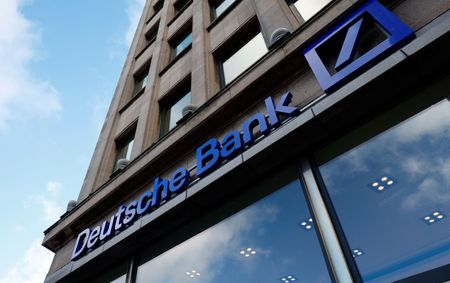By Sruthi Shankar
(Reuters) -European stocks retreated from two-month peaks on Wednesday, led by a drop in the shares of JD Sports and Julius Baer, while investors kept a cautious eye on U.S. trade developments and the tax bill debate.
The pan-European STOXX 600 fell 0.4% by 0907 GMT, led by retail and auto stocks.
Shares of Julius Baer slid 4.6% after the Swiss bank reported a 130 million Swiss franc ($156.4 million) charge from a credit portfolio review and announced the replacement of its chief risk officer.
JD Sports fell 6.5% to the bottom of the STOXX 600 after the British sportswear retailer posted a 2% fall in first-quarter underlying sales and warned that higher prices in its key U.S. market could hit customer demand.
Further spooking investors, data showed British inflation surged by more than expected in April, including in key areas closely watched by the Bank of England, complicating its path towards gradual interest rate cuts.
Investors are worried about the lack of progress on trade deals as the clock ticks down to the end of U.S. President Donald Trump’s 90-day tariff respite, as well as a sweeping U.S. tax bill that has raised concerns about the fiscal health.
However, the STOXX 600 has recovered from its April slump, and is trading less than 3% away from its all-time highs.
“We are not particularly comfortable with much higher levels in markets because what is missing is earnings growth in Europe,” said Roland Kaloyan, head of European equity strategy at BNP Paribas.
“Utilities, pharma, staples – those are the sectors that we are pushing rather than cyclical sectors like consumer discretionary or industrial sector, which are more exposed to reduction of earnings expectations.”
Morgan Stanley raised its view on the European banking sector to “attractive,” citing better earnings potential from continued yield steepening.
The European banks index is among the top performing sectors this year. With a 31% year-to-date gain, it is trading at its highest level since 2008.
German chipmaker Infineon rose 0.9% after it said it would work with Nvidia to develop chips for new power delivery systems inside artificial intelligence data centers.
Marks & Spencer dipped 0.5% after the British retailer said a “highly sophisticated” cyber attack would cost it about 300 million pounds ($403 million) in operating profit.
(Reporting by Sruthi Shankar in Bengaluru; Editing by Mrigank Dhaniwala and Sherry Jacob-Phillips)

